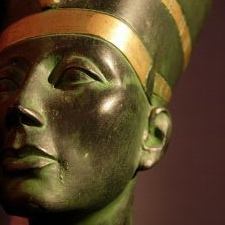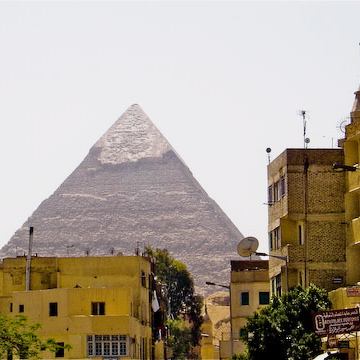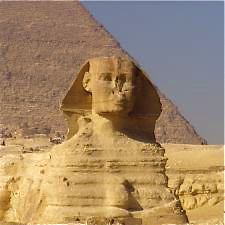The Travel Detective
Despite Recent Revolution, Egypt’s Transformation Tempting Travelers To Return
 It’s not very often that we get a chance to watch history unfold before our eyes, and one of those eyewitnesses to history is The Wall Street Journal‘s Charles Levinson, reporting from Cairo.
It’s not very often that we get a chance to watch history unfold before our eyes, and one of those eyewitnesses to history is The Wall Street Journal‘s Charles Levinson, reporting from Cairo.
Peter spoke with Charles the day after the Egyptian president stepped down as celebrations rang throughout the country.
Peter Greenberg: Quite an amazing last three weeks, wouldn’t you say?
Charles Levinson: Yeah, it’s been unreal. It’s been something I never thought I’d see.
PG: I’ve been going to Egypt for 25 years, and I was there as recently as a month ago. If you had told me based on the dynamic of the structure of that government three weeks ago that this would happen, I would have said, “Well, maybe in the next year there will be change, but never this fast.” Boy were we surprised?
CL: I agree with you entirely. I lived here for three years, from 2002-2005, when the protest movement then was building steam and you had Bush pushing his democratization agenda. There was hope that there would be a real opening. There was a multi-candidate presidential election and then we saw that quashed and a sort of retrenchment of that opening, a reversal. A lot of the hope was dashed and I share your sentiment that it didn’t seem possible. To see this … it’s pretty unreal.
 PG: Within moments of the announcement that Mubarak had resigned and supposedly went down to Sharm el-Sheikh, it was a party like atmosphere in the square: fireworks, boats being re-lit and going down the Nile. Everybody was partying. What’s the situation there right now?
PG: Within moments of the announcement that Mubarak had resigned and supposedly went down to Sharm el-Sheikh, it was a party like atmosphere in the square: fireworks, boats being re-lit and going down the Nile. Everybody was partying. What’s the situation there right now?
CL: It didn’t stop. The streets were filled with Egyptian flags everywhere. People were cleaning the streets. You’ve been to Egypt for 25 years, you now how dirty this place is and how people throw their trash everywhere all the time. Today, you saw people walking down the streets carrying brand-new sets of dust pans and brooms. We saw three, a group of teenagers or 20-somethings, who had bought paint and repainting the sidewalk curb, just on their own initiative, with the colors to indicate parking/no parking. We saw people scrubbing graffiti off the statue in Tahrir Square. It’s something you’ve never seen in Egypt… this outpouring of this desire to clean up the country, literally. It was quite amazing.
PG: Almost a resurgence of pride.
CL: Absolutely a resurgence of pride. People are saying the Egyptian flag now looks like an entirely different flag. Before it was something they didn’t want to hang and it wasn’t something they were particularly proud of. Now it’s become this incredible symbol of real accomplishment by the people.
PG: We’ve been getting so many emails and phone calls wanting to know, should they go to Egypt? Should they cancel their trips? Many of them already have. My advice to them is that the economic imperative of travel and tourism is so strong in Egypt that they will probably get their infrastructure back in terms of tourism before they probably even get their government back.
Previous News Coverage on PeterGreenberg.com:
CL: I think this place will bounce back fine from the couple weeks of trials it has endured as a result of these protests. No question it has cost the country quite a bit and will have done some damage, but I think they’ll bounce back. As for people thinking of coming or not to come, it is a pretty amazing thing to see. I mean the atmosphere, these people have literally come alive. This country feels like a different country from two, three weeks ago. It’s pretty remarkable. I would encourage somebody debating to travel here to come and experience it for themselves.
 PG: In the last three weeks was there ever a time that you feared for your own safety?
PG: In the last three weeks was there ever a time that you feared for your own safety?
CL: There was, definitely. There was particularly a two or three-day stretch when Western journalists were aggressively targeted by what appears to have been a regime orchestrated thuggery. You basically couldn’t go anywhere in the city without looking at being arrested, or beaten by these sort of roving gangs of hooligans. It was all over the city and almost everybody I know had some sort of horrific experience. We had one correspondent who had to get stitches after he was cornered in a building by a mob. Those days this place was one of the sketchiest work environments I’ve worked on in eight years in the Middle East. But that was a pretty isolated period, and once that was called off it’s been quite, quite peaceful and fine.
PG: Other than cleaning up the streets and repainting curbs, are the stores starting to open? Are the restaurants starting to open? Are the banks starting to open?
CL: Stores and restaurants are open; we’re on our way out to dinner right now. Most downtown shops were open; we saw some sort of cleaning up. I think not everything has reopened, but it looks like a good percentage is reopened.
PG: At the beginning of the protest we saw what happened with the local police versus the army. The police were were almost unilaterally hated by the Egyptians. They’ve all but disappeared, is that correct?
If you ever find yourself in the middle of a riot abroad: Travel Insurance And Egypt: Travel Protection During Civil Unrest
CL: Largely, yeah. There is still a police presence in the streets, but it is very limited. Traffic police here and there. Nothing like the ubiquitous presence it was before
 PG: What you really have now is the army, which is much better respected.
PG: What you really have now is the army, which is much better respected.
CL: Right, much better respected but certainly isn’t deployed in the same kind of numbers the police were. It isn’t really trained or prepared to do proper police work, like ground control and these sorts of things. There is going to be a sort of transition period in which the army is either going to have to play a bigger police role or there is going to have to be some sort of redeployment, or rebuilding, or sort of reconstruction of the police forces. It is not exactly clear how that is going to play out. There is also a lot of mystery. You can’t bring back the old police force as it was even if you wanted to. One of the big demands of the protest and the leaders of the opposition is to dismantle that whole internal security apparatus that was seen as sort of the backbone of the oppressive police-state before all this happened
PG: Well, we had the euphoria in the night following Mubarak’s resignation. We have the euphoria that is on the streets now. You’re going out to dinner in a few minutes and I’m sure there will be a festive atmosphere there. But then comes the unanswered question of, what next? What do you do now? Don’t you feel like you’re on this threshold moment of unrealistic expectations being realized too soon where people are saying, OK we’ve won, now what?
CL: I agree. I think once the euphoria of the sort of revolution passes the dirty work begins, and that means rewriting a new constitution, establishing parties, making sure that these opposition leaders actually get the sort of democratic system they want. And if not, then what? I think there’s no question that the slog, the hard work comes now. And there’s certainly a lot of questions about how this is going to play out.
PG: From your perspective being on the front lines in Cairo, what are your recommendations for Americans who are thinking of going to Cairo or thinking of visiting to Egypt who may have either postponed their trip or cancelled it entirely? What would you say to them?
Headed to Egypt? Don’t miss- Off The Brochure Travel Guide: Cairo, Egypt
CL: I’m not sure that people always take my advice on these sort of things, but I would say come. I think it’s a pretty cool thing to be a part of and to see. It really is history in the making. This has the potential to be the sort of dawn of democracy in the Arab world. Especially in country like Egypt, which has always been such a leader in this region, even though it sort of lost its mantle in the last years. It’s now poised to re-assume it with a vengeance.  This could really be the beginning of a momentous change that a lot of people have been waiting a long time for in this part of the world. If I’m an American sitting at home somewhere and debating whether to come, I would want to be a part of this and see this.
This could really be the beginning of a momentous change that a lot of people have been waiting a long time for in this part of the world. If I’m an American sitting at home somewhere and debating whether to come, I would want to be a part of this and see this.
PG: Thinking regionally I would make the same suggestion, and please feel free to disagree with me if you like, but I would make the same suggestion for those people thinking of going to Jordan or to Israel.
CL: Absolutely. I mean I think what’s happening here is contagious and it’s affecting the way people in Jordan, in the Palestinian territories, and in other countries in this region see themselves, see their governments, and see the potential that exists, in the potential for change that does exist.
PG: A little-known fact for most travelers: They’ve relaxed visa restrictions now for Americans, guess where? Libya. U.S. cruise ships will now be pulling into ports in Tripoli and Benghazi this year. Hopefully, I will be reporting from one of them when we pull into port. So it’s actually the power of travel and tourism as an economic driver to achieve at least some economic stability.
CL: I agree. Not just economic stability but getting to know each other. Getting people to people and making the world a smaller place.
By Peter Greenberg for Peter Greenberg Worldwide Radio.
Related links on PeterGreenberg.com:
- Travel Insurance And Egypt: Travel Protection During Civil Unrest
- U.S. Begins Voluntary Evacuation Of Citizens From Egypt
- Foreign Tourists Flee Egyptian Protests, Riots
- Off The Brochure Travel Guide: Cairo, Egypt
- Middle East Travel section












